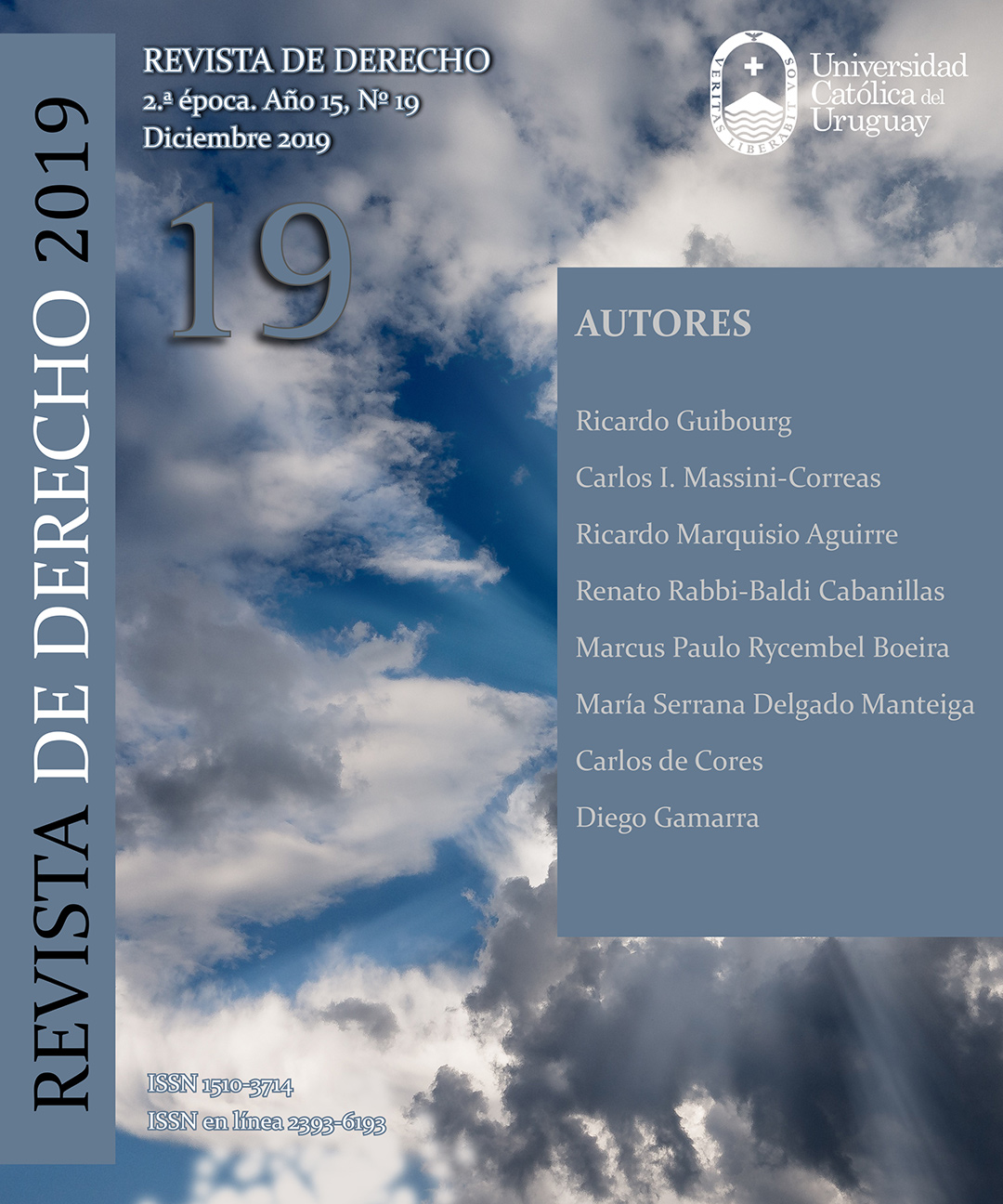La mirada interpretativa como base de una discrecionalidad discreta
DOI:
https://doi.org/10.22235/rd.v0i19.1731Palabras clave:
interpretación jurídica, discrecionalidad de los juecesResumen
En la senda trazada por Dworkin, se propone una concepción sobre la discrecionalidad jurisdiccional -discreta- a partir de la asunción de una necesaria posición interpretativa. A esos efectos se parte de la tesis de la indeterminación parcial del lenguaje y en particular de las reglas –conforme la formulación de Hart de tal posición-, que en términos de aplicación del derecho, independientemente de la perspectiva, determina el reconocimiento de la posibilidad de distinguir, al menos en ocasiones, casos fáciles y difíciles. Se presenta, asimismo, una posición externa o interna sobre la discrecionalidad y una tesis fuerte y una débil sobre su configuración. Se sostendrá que desde una insoslayable mirada interpretativa –interna–, que supone además vocación de coherencia sostenible en la tarea, la discrecionalidad no lo es en un sentido fuerte sino excepcionalmente, pues supone argumentar sobre una solución excluyente de otras con fundamento en los materiales jurídicos que componen el sistema.
Descargas
Citas
Atienza, Manuel, «Sobre la única respuesta correcta», en Aulis Aarnio, Manuel Atienza, Francisco J. Laporta, Bases teóricas de la interpretación jurídica, Madrid: Fundación Coloquio Jurídico Europeo, 2010.
Atienza, Manuel, «El sentido del Derecho. Carta a Tomás Ramón Fernández», Revista DOXA, número 23 (2000).
Dworkin, Ronald, Los derechos en serio, Barcelona: Planeta-Agostini, 1993.
Dworkin, Ronald, «¿Puede ser que no haya una respuesta correcta para los casos difíciles?», en Una cuestión de principios, Buenos Aires: Siglo Veintiuno Editores, 2012.
Dworkin, Ronald, El imperio de la justicia. De la teoría general del derecho, de las decisiones e interpretaciones de los jueces y de la integridad política y legal como clave de teoría práctica, Barcelona: Edit. Gedisa, 2008.
Fernández, Tomás Ramón, «Respuesta a Manuel Atienza», Revista DOXA, número 23, (2000).
Fernández, Tomás Ramón y Nieto, Alejandro, El Derecho y el revés, Barcelona: Editorial Ariel, 2000.
Gargarella, Roberto, «De la alquimia interpretativa al maltrato constitucional. La interpretación de la Constitución en manos de la Corte Suprema Argentina», UNAM, https://archivos.juridicas.unam.mx/www/bjv/libros/7/3015/6.pdf.
Hart, Herbert, El Concepto de Derecho, Buenos Aires: Edit. Abeledo-Perrot LexisNexis Argentina S.A, 2007.
Hart, Herbert, «American Jurisprudence through English eyes: The Nightmare and the Noble Dream», en Essays in Jurisprudence and Philosophy, Oxford: Clarendon Press, 1983.
Moreso, Juan José, La indeterminación del Derecho y la interpretación de la Constitución, Perú: Palestra, 2014.
Orunesu, Claudina, Positivismo jurídico y sistemas constitucionales, Madrid, Barcelona, Buenos Aires: Marcial Pons, 2012.
Ottonelli, Nelson, «Interpretación jurídica y decisión judicial: La indeterminación parcial del derecho y su carácter no neutral. Una búsqueda de vínculos entre las teorías de Hart y de Kennedy», Revista Ruptura, Número 6, Montevideo: FCU, 2015.
Prieto Sanchís, Luis, Justicia constitucional y derechos fundamentales, Madrid: Edit. Trotta, 2009.
Redondo, María Cristina, «Teorías del Derecho e indeterminación normativa», Revista DOXA, número 20, (1997).
Rodríguez Carrau, Guzmán, «No tirarás la moneda: términos jurídicos, vaguedad y el deber de los jueces de juzgar, pase lo que pase», Revista Ruptura, Número 3, Montevideo: FCU, 2012.
Sagüés, Néstor Pedro, «Interpretación constitucional y alquimia constitucional (El arsenal argumentativo de los tribunales supremos)», Revista Iberoamericana de Derecho Procesal Constitucional, Nº 1, (2004).
Streck, Lenio Luiz, Verdad y consenso. De la posibilidad a la necesidad de respuestas correctas en Derecho, Montevideo, Buenos Aires: Editorial BdeF, 2012.
Zagrebelsky, Gustavo, El derecho dúctil. Ley, derechos, justicia, Madrid: Editorial Trotta, Séptima Edición, 2007.
Zagrebelsky, Gustavo, La ley y su justicia. Tres capítulos de justicia constitucional, Madrid: Editorial Trotta, 2014.













